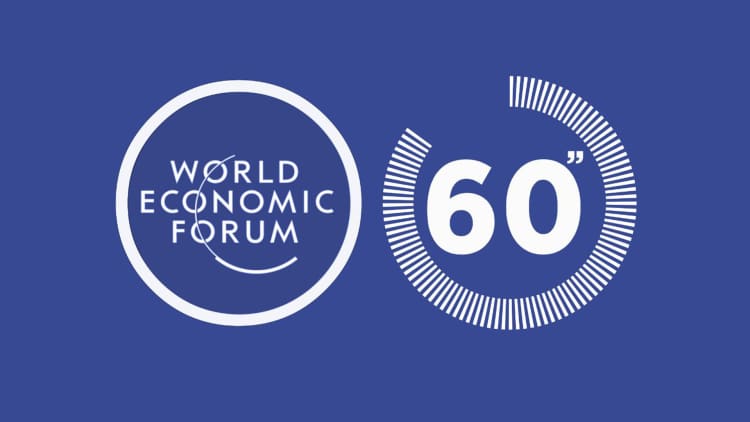
As it gets started this week, the World Economic Forum is as big as ever.
The juggernaut of a conference in Davos, Switzerland, is projected to include more than 2,500 participants from 140 countries who will meet to "address key issues of global importance," according to organizers, in a small skiing village full of snow, armed guards and international press.
The attendee list for the 45th edition of the event is, as usual, star-studded.
Read MoreDavos: More women in 2015-but don't get excited
French President François Hollande, Chinese Premier Li Keqiang, German Chancellor Angela Merkel and Italian Prime Minister Matteo Renzi are some of the 40 heads of state and government coming.
Jack Ma of Alibaba, Mary Barra of General Motors, Satya Nadella of Microsoft and Eric Schmidt of Google are among the more than 1,500 business leaders attending.
The financial community also will be well represented. Investors coming include George Soros of Soros Fund Management, Ray Dalio of Bridgewater Associates, Stephen Schwarzman of Blackstone Group and Larry Fink of BlackRock. Bankers include Lloyd Blankfein of Goldman Sachs, James Gorman of Morgan Stanley and Jamie Dimon of JPMorgan Chase.
Other boldface names include former U.S. Vice President Al Gore, World Bank President Jim Yong Kim, Microsoft co-founder and philanthropist Bill Gates, U.S. Secretary of State John Kerry, U.S. Treasury Secretary Jack Lew and musician Pharrell Williams.
Read MoreThe rich and famous visit Davos
Under the theme "The New Global Context," WEF founder Klaus Schwab is hoping all that star power can do nothing short of further harmonizing human relations.
"The World Economic Forum serves the international community as a platform for public-private cooperation," Schwab said in advance of the gathering. "Such cooperation, to address the challenges we all face, is more vital than ever before. But it requires mutual trust. My hope is that the annual meeting serves as the starting point for a renaissance of global trust."
Some 280 conference sessions will discuss topics around four lofty themes: crisis and cooperation ("How can a world of 'decentered globalism' deliver the necessary cooperation in areas such as climate governance, cybersecurity and international trade and investment?"); growth and stability ("How can post-crisis economies become more dynamic, inclusive and resilient?"); innovation and industry ("What sectors, models and strategies will drive innovation and growth in the future?"); and society and security ("Faced with uncertainty, how can societies avoid the vicious cycle of distrust, polarization and unrest?").
WEF attendees will have to deal with two decidedly 1-percenter—the richest of the rich—problems.
Already pricey cocktails and fondue in Davos will be even more expensive thanks to the surprise move by the Swiss National Bank to scrap its cap on the franc against the euro, which caused the franc to appreciate sharply versus the euro and the U.S. dollar.
And conference-goers will have to contend with an unusual excess of private jet and helicopter traffic thanks to all the VIPs converging on the mountain resort town.






